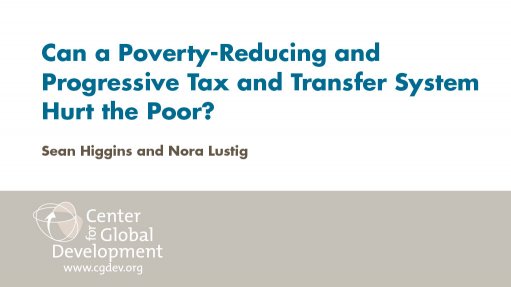
Whether the poor are helped or hurt by taxes and transfers is generally determined by comparing income distributions before and after fiscal policy using stochastic dominance tests and measures of progressivity and horizontal inequity. We formally show that these tools can fail to capture an important aspect: that a substantial proportion of the poor are made poorer (or non-poor made poor) by the tax and transfer system. We call this fiscal impoverishment, and axiomatically derive a measure of its extent. An analogous measure of fiscal gains of the poor is also derived, and we show that changes in the poverty gap can be decomposed into our axiomatic measures of fiscal impoverishment and gains. We also establish dominance criteria for unambiguous comparisons of fiscal impoverishment and gains under the current system to that under a proposed reform, for a range of possible poverty lines. We illustrate using Brazilian data.
Written by Sean Higgins and Nora Lustig, Center for Global Development